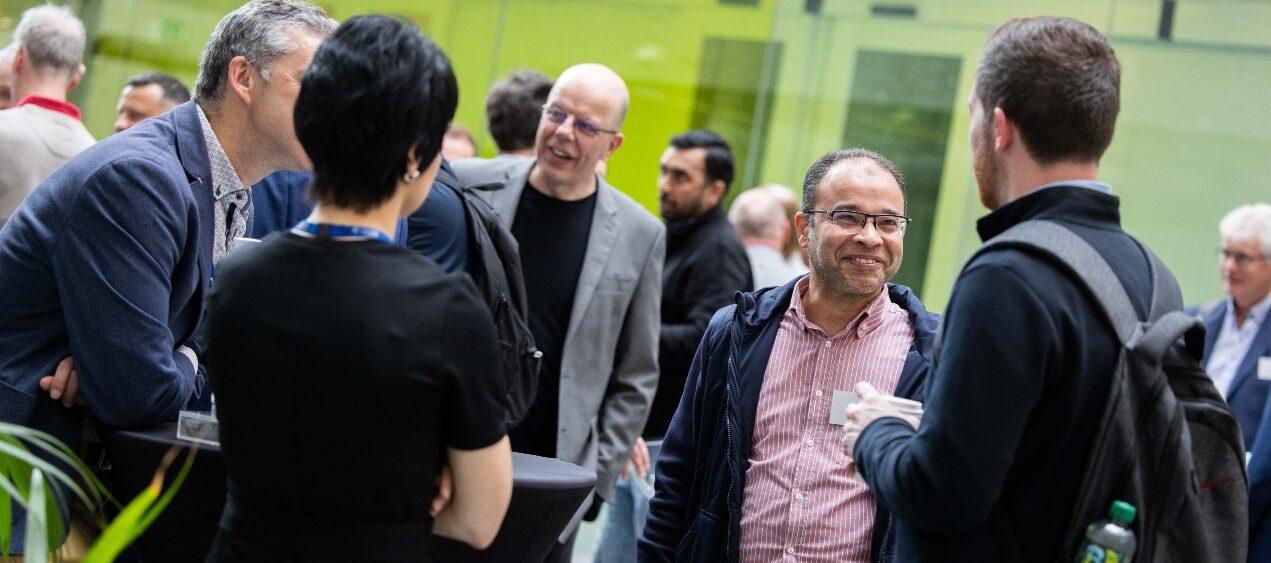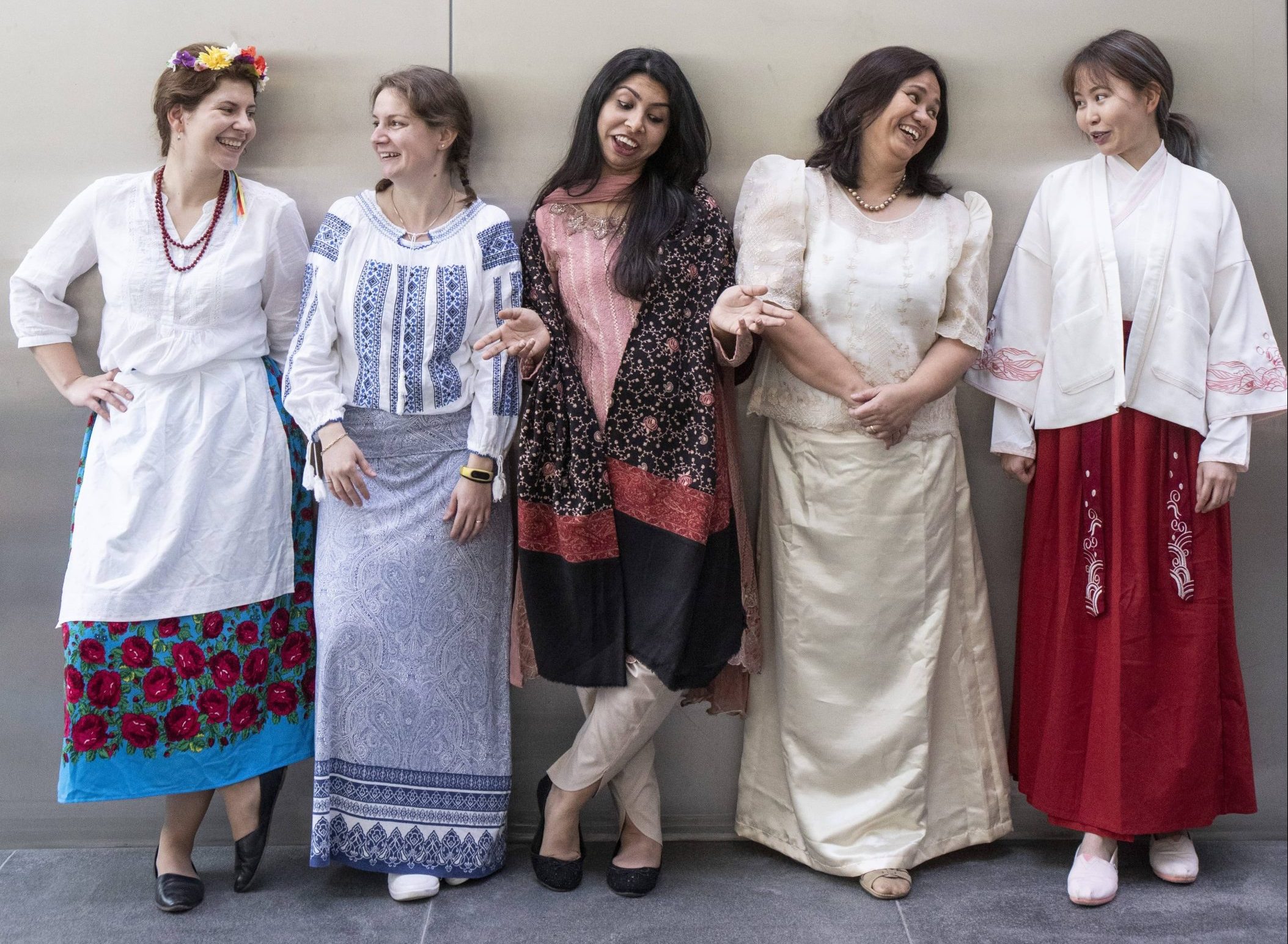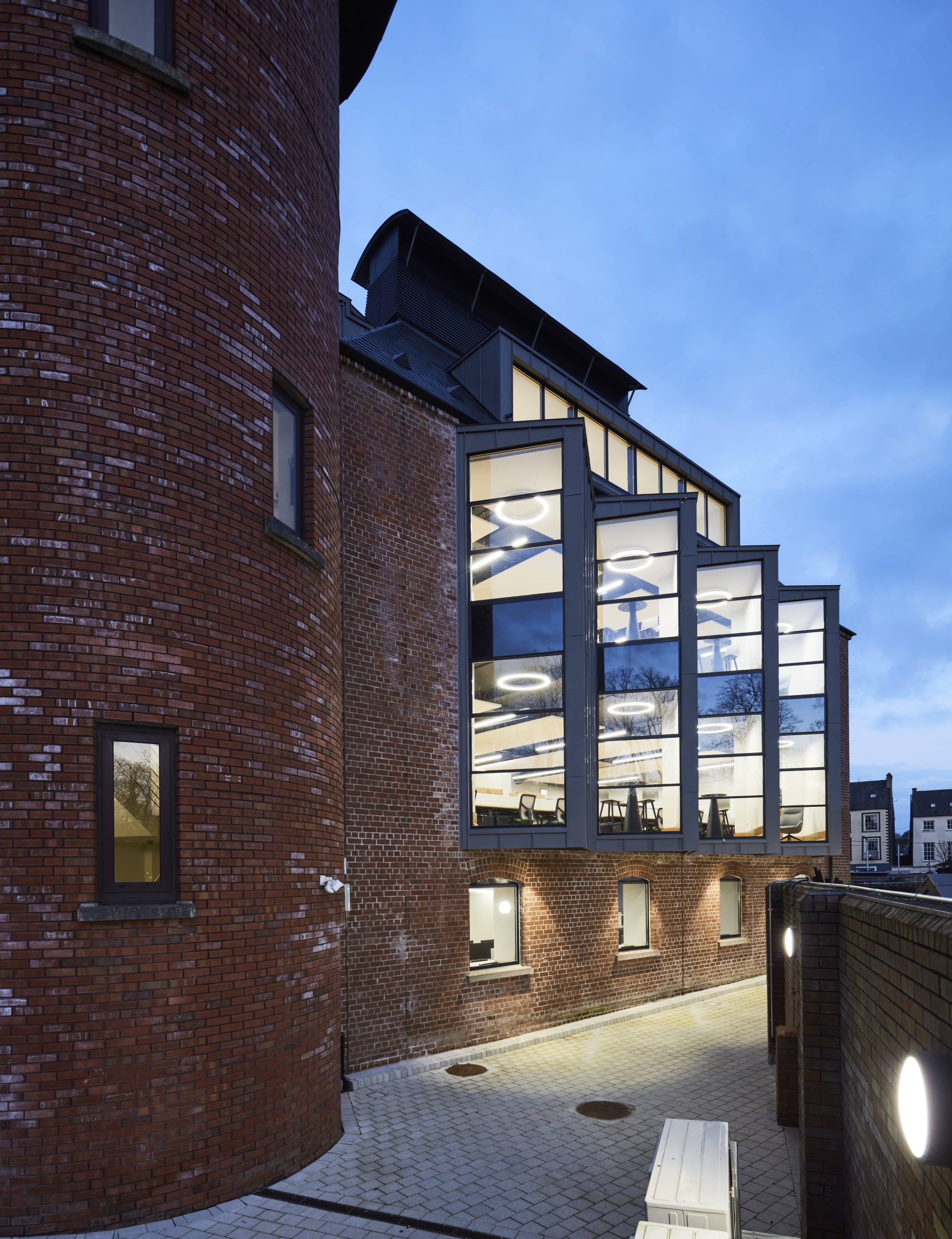Career Opportunities
Your future starts here.
At Tyndall your contributions will make a real difference in tackling some of the world’s toughest deep-tech challenges. Your efforts will lead to a better future.
Make your future count – join us!
Nurturing Talent
Whether you will graduate shortly or you are an experienced professional, Tyndall, Ireland’s leading deep-tech research institute has opportunities for you. We offer research and engineering positions and postgraduate opportunities across a wide range of science and engineering disciplines.
We also offer a variety of professional support positions across a wide range of disciplines. Tyndall’s ambitious 2025 strategy means that we want to attract, support, nurture and enable people to fulfil their potential within a culture of inclusivity, creativity and entrepreneurship. Tyndall takes an active role in developing its staff and facilitating the fulfilment of their career goals.
Wonder what this fulfilment might look like? Watch our videos to learn more.

Our People & Culture
At Tyndall we’re passionate about your development, and keen to see you progress and think big. We are looking for curious minds to join us, who are always eager to learn, collaborate and innovate within a dynamic team. We want you to challenge yourself, your colleagues and your customers (internal and external) to think outside the box – beyond the obvious.
If you want to work and study with some of the best researchers, scientists, engineers and support staff from over 50 different nations – come and join us.
Here at Tyndall we value curiosity, have a passion for learning and are committed to finding solutions to global challenges and answers to our customers’ needs. We are constantly seeking new innovative thinkers, creative problem solvers and exceptional research talent.
Collaboration is our blueprint for success – it is more than simply working together – it means we embrace debate and collectively navigate complex challenges, by engaging diverse perspectives to arrive at a more informed and deliverable solution.
Cross-functional collaboration is crucial, because no one team is responsible for an activity or research programme on its own. Many specialists from very diverse backgrounds work with a shared purpose to produce excellent research.
Our People are at the heart of Tyndall and we want you to thrive. From day one, you’ll have the opportunity to make meaningful contributions to the bigger picture. You can set yourself up for success with our multidisciplinary career development frameworks.
Change is a constant throughout your career at Tyndall, and you may choose different ways to grow. You can seek greater depth in your area of expertise, change scope in your current position or even explore a new opportunity here. Whatever you decide, you’ll play the lead role in your growth, and we’ll be supporting you all the way.
We have a dedicated team that seeks to continuously review and improve our People and our Culture. Join us – and you too can be part of this great work.
Benefits

Financial Wellbeing
There are many ways in which we can offer you financial wellbeing and assistance during your time with us.

Leave Entitlements
Your milestone moments are important to us. The Institute offers a variety of leave packages to suit your own personal life stage.

Career Growth & Development
Tyndall provides various ways in which you can grow your career and develop your skills.

Tyndall Alumni
Discoveries made by extraordinary people have shaped the world as we know it today and our Tyndall alumni are no exception. Learn more about their inspiring stories and careers here.
Summer Fellowship
Our hugely popular Summer Fellowship programme will re-open this December.
The Summer Fellowship Programme will allow you to work with renowned researchers at Tyndall, IPIC the Research Ireland Centre for Photonics and MCCI. You’ll receive access to world-class research environments, and the opportunity to learn from award-winning scientists and researchers who are at the cutting edge of deep-tech research.
Find out more about the Summer Fellowship Programme.


Equality, Diversity & Inclusion
The mission, vision and values of Tyndall are built on the foundations of respect and diversity. At our core, we believe that by valuing the varied backgrounds of a community of 600 researchers, students and support staff, and fostering interdepartmental collaboration, we can continue to deliver world-class research and solutions to global societal challenges.
The key to our success is the varied backgrounds of our research community. Our diversity allows us to embrace, debate and collectively navigate complex challenges, by engaging diverse perspectives to arrive at more informed and deliverable solutions to global societal challenges.

Why Tyndall?
Our People are at the heart of Tyndall and we want you to thrive. From day one, you’ll have the opportunity to make meaningful contributions to the bigger picture and address global societal challenges. We are changing the way we think about research. While in the past we focused on technology and its capabilities, our approach is now changing for the better. We are thinking about the output of our research in human as well as economic terms. The world’s major societal challenges such as poverty, energy, gender equality and climate change are affecting the lives of hundreds of millions of people around the world and we have the power to make a difference.
You can set yourself up for success with our multi-disciplinary career development frameworks.
Change is a constant throughout your career at Tyndall, and you may choose different ways to grow. You can seek even greater depth within your expertise, change scope in your current position or even explore a new opportunity here. Whatever you decide, you’ll play the lead role in your growth, and we’ll be supporting you all the way.
We have a dedicated team that seeks to continuously review and improve our People and our Culture. Join us – and you too can be part of this great work.

Céad Míle Fáilte! One Hundred Thousand Welcomes!
If you’re looking for a welcoming country abundant with career opportunities and a high quality of life, Ireland is your destination!
Ireland, known for its stunning landscapes and rich cultural heritage, is rapidly emerging as a top destination for both professionals and students. As a forward-thinking and fast-growing nation, Ireland offers a welcoming environment that makes it an excellent place to live and work.
Home to vibrant cities like Dublin and Cork, Ireland provides a cosmopolitan lifestyle set against a backdrop of beautiful coastlines, lush countryside, and picturesque towns. The ease of commuting, with many people getting to work in 30 minutes or less, adds to the appeal of Irish cities.
Ireland is a powerhouse in the energy, food, pharmaceutical, and ICT industries. The country hosts seven out of ten of the world’s top pharmaceutical companies and all of Ireland’s top food companies. This robust industrial presence creates numerous opportunities for skilled professionals and recent graduates. Ireland is also the destination of choice for many international companies, with organizations such as Google, Apple, Meta, Intel, and Analog Devices headquartered here.
Ireland has the perfect lifestyle balance – vibrant, bustling cities, while also boasting some of the most spectacular natural beauty in Europe.
Living & Working in Ireland
Ireland offers an exceptional quality of life, with a friendly and inclusive community, excellent healthcare, and a rich cultural scene. Whether you are an experienced professional seeking career advancement or a young talent starting your career, Ireland provides a dynamic and exciting environment for growth.
Education in Ireland
Ireland has a worldwide reputation for high-quality education, with the Irish Government investing over €782 million annually in research across Ireland’s higher education institutions. Universities like University College Cork (UCC) contribute significantly to the local talent pool, driving innovation and competitiveness.
Ireland is also the fastest-growing economy in Europe, offering numerous opportunities for personal and professional development. Recognized as one of Europe’s top destinations for the future, Ireland is the ideal place for anyone seeking new opportunities and a high quality of life.
